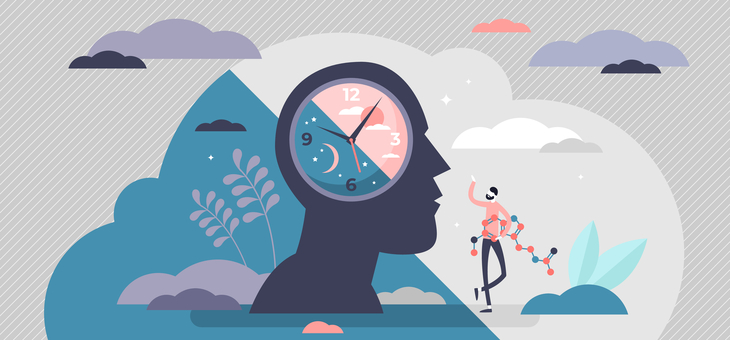Are you a night owl or an early bird? Does it matter?
Two recent reports suggest that your sleep patterns do matter for your mental health and wellbeing, but they both come at the question from different perspectives.
One report has found that waking up one hour earlier each morning can significantly reduce your risk of developing depression (which is counterintuitive for many night owls).
The other report suggests it is less about which type of sleep pattern you prefer, but making sure you listen to your body clock if you want to avoid damaging your mental and physical health.
Read more: Sleep rip-offs to avoid this winter
In a study of 840,000 people, researchers from the University of Colorado found that waking up just one hour earlier could reduce a person’s risk of depression by 23 per cent.
Study author Professor Celine Vetter said the sample size in this research made the findings significant.
“We have known for some time that there is a relationship between sleep timing and mood, but a question we often hear from clinicians is: How much earlier do we need to shift people to see a benefit?” Prof Vetter said.
Read more: Common disorder linked to increase stroke risk
“We found that even one-hour earlier sleep timing is associated with significantly lower risk of depression.”
Previous observational studies have shown that night owls are as much as twice as likely to suffer from depression as early risers, regardless of how long they sleep. But because mood disorders themselves can disrupt sleep patterns, researchers have had a hard time proving causation.
The researchers assessed deidentified genetic data on the variants associated with sleep timing preference from up to 850,000 individuals, including data from 85,000 who had worn wearable sleep trackers for seven days and 250,000 who had filled out sleep-preference questionnaires. This gave them a more granular picture, down to the hour, of how variants in genes influence when we sleep and wake up.
Read more: Why vitamin D is vital for bones
In the largest of these samples, about a third of surveyed subjects self-identified as early birds, 9 per cent were night owls and the rest were in the middle. Overall, the average sleep midpoint was 3am, meaning they went to bed at 11pm and got up at 6am.
Then using a different data set and surveys about major depressive disorder, the researchers found that people with the genetic variants that predisposed them to being early risers had a lower risk of depression.
The study found that if someone who normally goes to bed at 1am goes to bed at midnight instead and sleeps the same duration, they could cut their risk by 23 per cent; if they go to bed at 11pm, they could cut it by about 40 per cent.
It’s unclear from the study whether those who are already early risers could benefit from getting up even earlier. But for those in the intermediate range or evening range, shifting to an earlier bedtime would likely be helpful.
The second study, this time from a global collaboration of researchers, including some from Monash University, found that defying a person’s own body clock was linked to depression.
Using similar information on the genetic information linked to being a night owl or an early bird, the researchers also had information from participants on whether they were a morning or an evening person.
The study found that people who were more misaligned from their natural body clock were more likely to report depression and anxiety and have lower wellbeing.
Lead author Jessica O’Loughlin, from the University of Exeter, said they also found night owls were the worst affected.
“We found that people who were misaligned from their natural body clock were more likely to report depression, anxiety and have lower wellbeing,” Ms O’loughlin said. “We also found the most robust evidence yet that being a morning person is protective of depression and improves wellbeing.
“We think this could be explained by the fact that the demands of society mean night owls are more likely to defy their natural body clocks by having to wake up early for work.”
Are you an early bird or a night owl? How do you think your mood is affected by your sleeping patterns? Why not share your thoughts in the comments section below?
If you enjoy our content, don’t keep it to yourself. Share our free eNews with your friends and encourage them to sign up.

